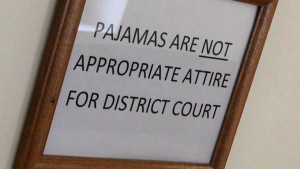 Remember Cinderella’s step-mom? “Light the fire! Fix the breakfast! Wash the dishes! Do the mopping! And the cleaning and the shopping!”* She was not the kind of step-parent a child would ever want. She was the original “step-monster”.
Remember Cinderella’s step-mom? “Light the fire! Fix the breakfast! Wash the dishes! Do the mopping! And the cleaning and the shopping!”* She was not the kind of step-parent a child would ever want. She was the original “step-monster”.
I’m a step-parent, but to grown adult children with children of their own. But whether the children are very small or are adults on their own, there is no tried-and-true manual for step-parents to “fit” into the new family dynamic. After all, each family is unique with their own way of doing things, patterns of communication, and traditions. And, maybe the step-parent is not entirely welcome, especially if the “original parent” feels replaced, angry, jealous, and/or threatened and communicates this directly or indirectly to the child(ren).
Nothing could be worse for your children. Several years ago, a woman I know, I’ll call her “Linda”, met her former spouse’s new fiancé. Sadly, Linda took most every opportunity to criticize and be nasty to the fiancé. She would not listen to reason nor dignity. Her child marinated daily in Linda’s hatred for the fiancé.
The fiancé appeared to love the child. She attended the child’s events at school, church and gymnastics. She sent her home with treats, bought her clothes, and otherwise demonstrated her attachment to the child. The child wanted to love the step-mom but Linda sabotaged it in every possible way. Linda mocked the clothes as being tasteless, ill-fitting, and or “cheap”. She threw away the treats in front of the child. She refused to speak to the fiancé at school and other events. The child suffered from all the stress and became very anxious whenever the fiancé was mentioned or was around Linda. The child was not free to form an emotional bond with the fiancé and that relationship suffered.
The child’s father was no “winner”. Having been previously granted only supervised visitation, his ability to properly care for the child was in question. Linda utterly failed to grasp that the fiancé could ensure the child’s well-being during the father’s parenting time. We encouraged Linda to make an ally of the fiancé and at least try to co-parent with her but Linda refused. The fiancé became the step-mom. Eventually, the new step-mom gave up trying to be friendly to Linda and joined her new husband in the ongoing war between the parents. The child suffered and exhibited signs of emotional distress and anxiety as a result of the adult’s antics.
Don’t be “Linda”. Love your child more than you hate their step-parent.
So, what do you do when the step-mom / step-dad appears? To be direct, you do not have a right to prevent your child’s other parent from dating or remarrying. They have all the same rights as you do to live a full life – and that includes dating and or remarrying.
So, it is time for a little introspection.
First, do you welcome a step-parent in your child’s life? If not, why not? Be specific. Write it down. Odds are if you are unable to lay out the “why” on paper, it may be more of an emotional reason than a rational one. Note, it is not enough that you “just don’t want someone else in the child’s life”. If that is the only thing you can come up with, take a breath and put on your adult pants. Life moves forward whether we want it to or not. Adulting is not always easy, but it is what we are called to do once we have children. Put your children first before your own jealousy or insecurity.
Second, take inventory of your emotions. Are you angry? Jealous? Threatened? And, if so, why? Are these emotions something you want your child to marinate in? Even if you don’t openly verbalize your unhappiness about the step-parent, your child will still pick up on the non-verbal cues. Keep adult emotions and feelings away from the kids. They can’t fix it and the are very sensitive to the emotional well-being of the hand that rocks the cradle. In short, keep the kids out of it.
Third, is it the thought of your calling someone else “Mommy” or “Daddy”? Please know, if you seek to maintain your place in that child’s life and take care of your obligations as a parent financially and emotionally, there is no reason why you won’t remain “Mommy/Daddy”. Yes, seeing your child get attached to a new dating partner can be hard (Divorced and Dating with Kids is the subject of another article). But, by creating and maintaining a respectful relationship with the new step-parent, you will know someone is ensuring your child’s well-being when you are not there, and that peace of mind is priceless.
Fourth, do you believe the step-parent is in any way a threat to the safety and well-being of your child? Does he or she have a history of drug use? Violence? High risk activities? Child molestation? Alcoholism? Criminal activity? If you have any of these concerns, then stop reading and call your attorney right now. The “best interests” of the child is the gold standard in parenting time allocation. If that person represents a danger to the child, you are not over reacting. You need to speak up to protect your child from someone who represents a potential danger to them.
Our hope is that your co-parent will be respectful and reasonable in how they handle introducing the new spouse into the family. Remember, it is not always the easiest task for the parents, step-parent or the child. Show each other some grace and give it some time. Take it slow. Open a dialogue with your co-parent about any concerns you have and collaborate – don’t try to dictate. Who they date or marry is not your decision. Yes, your child is involved but again, your ex has every right to move on in his or her life – just as you do. Collaboration with your co-parent will ease the transition and promote the well-being of your child.
Life evolves. You will want the same considerations when you fall in love again and or remarry. The shoe, or the glass slipper, will be on the other foot if it hasn’t been already, and you could be the step-monster, I mean step-mom.
Good luck!
*from Cinderella’s, “The Work Song” Continue reading →
 ion is a civil action but it can have criminal repercussions if violated. Orders of Protection can be issued between those persons who have lived together, had sex, are related, had dated or other such close relationship. Orders of Protection can be issued when there is a real or immediate threat of harm to the complainant’s person or property.
ion is a civil action but it can have criminal repercussions if violated. Orders of Protection can be issued between those persons who have lived together, had sex, are related, had dated or other such close relationship. Orders of Protection can be issued when there is a real or immediate threat of harm to the complainant’s person or property.

 If you are contemplating a divorce in Tennessee or already in the process, the road may be a rough one appearing to be filled with perilous pitfalls. Every divorce situation is different and many are quickly and amicably resolved. These are typically referred to as “uncontested divorces.” Sometimes things work out well and everyone leaves the marriage satisfied that they have worked things out amicably. However, some divorces are riddled with animosity, feuding and strife from day one. This is something that is very difficult to predict because of the nature of divorce. Many times an “uncontested” divorce quickly becomes contested and the parties find themselves in a living nightmare!
If you are contemplating a divorce in Tennessee or already in the process, the road may be a rough one appearing to be filled with perilous pitfalls. Every divorce situation is different and many are quickly and amicably resolved. These are typically referred to as “uncontested divorces.” Sometimes things work out well and everyone leaves the marriage satisfied that they have worked things out amicably. However, some divorces are riddled with animosity, feuding and strife from day one. This is something that is very difficult to predict because of the nature of divorce. Many times an “uncontested” divorce quickly becomes contested and the parties find themselves in a living nightmare!
 Last month, an Ohio Court awarded Jennifer Kershaw $1,580,000 in compensatory damages and $20 million for punitive damages. The Defendant was her former spouse, Jerry Bailey. The lawsuit was over physical injuries she received from being punched in the face repeatedly by Mr. Bailey while the two were still married. Mr. Bailey was fined $100, sentenced to two years probation, and served a mere two days in jail after a conviction of misdemeanor domestic violence for his then wife’s broken facial bones. Two days in jail. $100. Probation. Case over? Not yet.
Last month, an Ohio Court awarded Jennifer Kershaw $1,580,000 in compensatory damages and $20 million for punitive damages. The Defendant was her former spouse, Jerry Bailey. The lawsuit was over physical injuries she received from being punched in the face repeatedly by Mr. Bailey while the two were still married. Mr. Bailey was fined $100, sentenced to two years probation, and served a mere two days in jail after a conviction of misdemeanor domestic violence for his then wife’s broken facial bones. Two days in jail. $100. Probation. Case over? Not yet. As an attorney, I guide my clients not to publish their “moving on” moments on facebook or other social media and just keep it off social media period. Maybe your spouse may feel jealous of your latest loves after seeing you online going out night after night in downtown Nashville. Maybe not. But, your shared moments are well-documenting what the court would likely see as Inappropriate Marital Conduct – which is grounds for divorce in Tennessee. In other words, you are building a substantial case against yourself, selfie by selfie, all without your spouse or his/her attorney lifting a finger, other than saving the pictures to be used at trial. And, even if you delete content in a dramatic effort to clean up your social media history, it is still discoverable. Even deleted, once posted, it never actually goes away. People have long memories. The internet’s is longer, as in forever.
As an attorney, I guide my clients not to publish their “moving on” moments on facebook or other social media and just keep it off social media period. Maybe your spouse may feel jealous of your latest loves after seeing you online going out night after night in downtown Nashville. Maybe not. But, your shared moments are well-documenting what the court would likely see as Inappropriate Marital Conduct – which is grounds for divorce in Tennessee. In other words, you are building a substantial case against yourself, selfie by selfie, all without your spouse or his/her attorney lifting a finger, other than saving the pictures to be used at trial. And, even if you delete content in a dramatic effort to clean up your social media history, it is still discoverable. Even deleted, once posted, it never actually goes away. People have long memories. The internet’s is longer, as in forever. A Clerk of Court in Pennsylvania recently had signs posted in the court room indicating that pajamas are not appropriate court attire. Really! Pajamas! You would think that would be obvious “what not to wear” but clearly, in that courtroom, it had happened one too many times.
A Clerk of Court in Pennsylvania recently had signs posted in the court room indicating that pajamas are not appropriate court attire. Really! Pajamas! You would think that would be obvious “what not to wear” but clearly, in that courtroom, it had happened one too many times. If you are already have an attorney, contact her first and let her know you’ve been served. She will need the subpoena to evaluate it and your next steps. Time may be of the essence, so deliver it promptly to your lawyer.
If you are already have an attorney, contact her first and let her know you’ve been served. She will need the subpoena to evaluate it and your next steps. Time may be of the essence, so deliver it promptly to your lawyer.